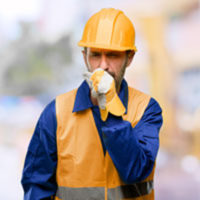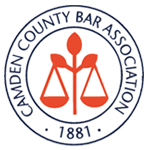 Workplace irritants that cause or complicate respiratory injuries or illness can seriously impact a workers’ ability to carry out their work duties. Certain work environments can actually ignite or exacerbate pre-existing respiratory illnesses, such as asthma, COPD, and emphysema.
Workplace irritants that cause or complicate respiratory injuries or illness can seriously impact a workers’ ability to carry out their work duties. Certain work environments can actually ignite or exacerbate pre-existing respiratory illnesses, such as asthma, COPD, and emphysema.
When these injuries or illnesses occur, affected workers may be entitled to workers’ compensation benefits.
Respiratory Illness in the Workplace
There are many types of work environments and occupations that can result in respiratory illness and injuries. For example, there has been a long-standing connection between miners and mesothelioma, which is a cancer in the lining of the lungs and other organs due to exposure to asbestos, that can show up 20-40 years after exposure.
Plumbers, roofers, car mechanics, construction workers, and their families, have suffered from asbestosis and other lung diseases caused by exposure to asbestos fibers and other irritants inhaled in the workplace, or brought home on clothing and hair.
Respiratory Injuries, Illnesses, and Causes
The leading types of lung and respiratory injuries and illnesses found in workplaces across the country include:
- Asbestosis
- Berylliosis
- Chronic Bronchitis
- Chronic Obstructive Pulmonary Disease (COPD)
- Cystic Fibrosis
- Emphysema
- Lung Cancer
- Mesothelioma
- Organic Dust Toxic Syndrome
- Silicosis
There are a variety of workplace environmental issues and toxic substances found in the workplace that can cause these respiratory illnesses and injuries. The most common causes include:
- Exposure to toxic chemicals
- Allergic reactions to workplace materials
- Exposure to firefighting foam
- Inhalation of carcinogenic substances
- Residue from airborne manufacturing elements
- Toxic dust or fumes
- Respiratory irritants such as smoke, vapor, or gases
- Mists and sprays used in manufacturing or for insect and pest control
Respiratory Safety
The Occupational Safety and Health Administration (OSHA) has developed safety procedures and mandates for employers whose work environments expose workers to harmful and toxic substances. Employers must provide workers with personal protective equipment (PPE) such as:
- Work coveralls
- Respiratory masks or other inhalation protective devices
- Disposable work gloves to avoid cross contamination that occurs when workers transfer toxic fibers to their nose or mouth
- Proper ventilation in the work area
Procedures for respiratory safety should include:
- Proper training on the use and safe handling procedures of respiratory toxins and irritants to help workers avoid the risks and hazards associated with their job.
- Regular inspection and maintenance of equipment to help avoid accidents that can expose workers to toxic substances.
- Training on emergency responses to respiratory injury that can reduce the damage to airways that have been exposed to airborne toxins.
Claiming Workers’ Compensation Benefits
New Jersey workers’ compensation laws provide financial coverage for hospitalizations, surgeries, medical bills, therapy, and prescription medications related to a workplace injury or illness. It is vital that workers report their injury or illness as soon as possible, and maintain copious records of doctor visits and medical costs associated with the injury.
Compensation for lost wages is also available to those who qualify. Consulting with an experienced Cherry Hill workers’ compensation lawyer can ensure that the legal rights of the worker are protected, and the maximum amount of compensation is claimed.
Cherry Hill Workers’ Compensation Lawyers at Pietras Saracino Smith & Meeks, LLP Help Injured Workers Claim Workers’ Compensation Benefits
If you have suffered a workplace injury or illness, contact the Cherry Hill workers’ compensation lawyers at Pietras Saracino Smith & Meeks, LLP at 856-761-3773 or contact us online to schedule a free consultation today. Our Cherry Hill, New Jersey offices serve clients throughout South Jersey and the City of Camden.






